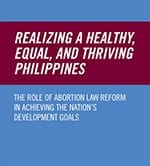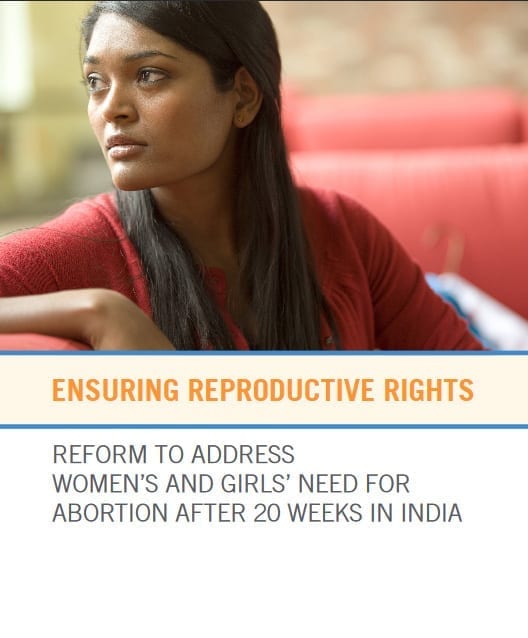Legislative Brief: Abortion Law Reform in Achieving the Development Goals of the Philippines

Respecting, protecting, and fulfilling women’s access to reproductive rights is essential to achieving a healthy, equitable, and developed Philippines. The International Conference on Population and Development Programme of Action, adopted by the Philippines in 1994, recognized that reproductive rights are a central part of ensuring a country’s development. This recognition was reaffirmed in the recent Sustainable Development Goals, which call for universal access to reproductive health and rights. Despite the widespread consensus on the significance of realizing women’s reproductive rights, the Philippine restrictive legal landscape on abortion continues to impede the country’s progress toward achieving sustainable development.
This briefing paper discusses the grave impact of the country’s restrictive abortion laws on women’s health and rights and the development of the nation. It highlights the critical role Congress members can play in fulfilling the government’s obligation to realize Filipinos’ reproductive rights. This includes ensuring that the constitution and country’s penal laws clearly legalize abortion, at a minimum, when a pregnancy endangers the life or physical or mental health of the pregnant woman.

